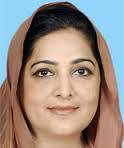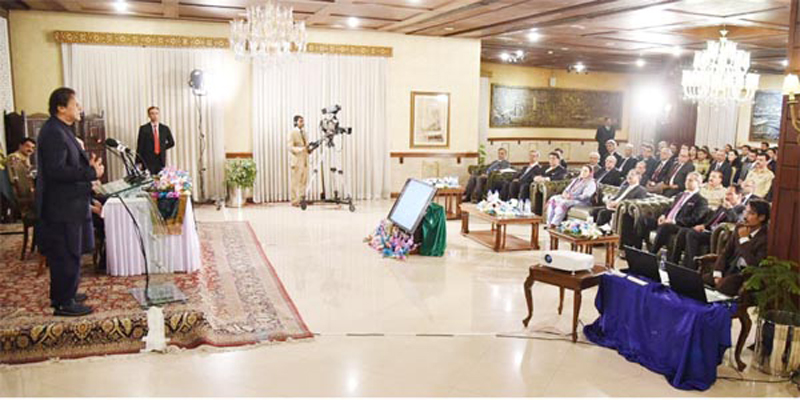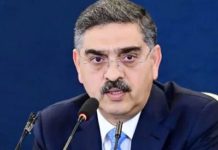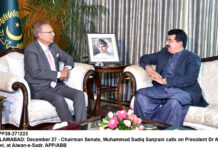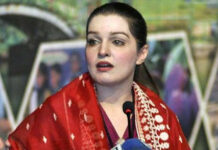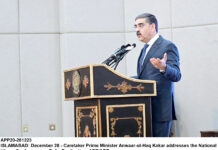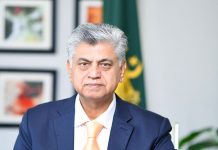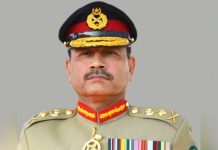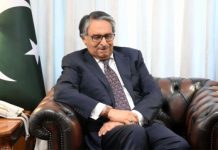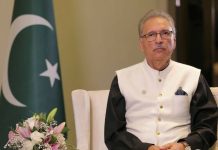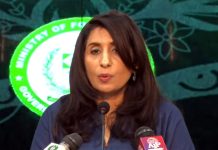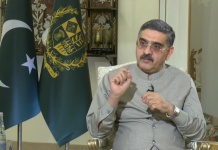ISLAMABAD: Prime Minister Imran Khan Thursday said with democracy getting mature, the national institutions would never clash with one another as they had started working within their purview.
As a democratic culture and mindset prevailed in the country and the state institutions respected one another to the disappointment of many, including the Bharatiya Janata Party (BJP) of India and mafias in Pakistan, which wanted to destabilize the latter, he said while addressing the inaugural session of two-day Engage Africa Conference here at the Ministry of Foreign Affairs.
The prime minister said attempts were made to create instability in the country through a sit-in in the recent past and by unduly playing up a case in the Supreme Court particularly by the Indian media. New Delhi wanted to destabilize Pakistan as the way the incumbent government in Islamabad had highlighted the Kashmir issue was unprecedented.
Unfortunately, some people in Pakistan in their bid to destabilize the country had put all the emphasis on the Kashmir issue made by the government on the back burner, he added.
“Who was pleased the most – the racist BJP government of India, which had been celebrating a lot. First, they had pinned hopes at the sit-in and got crushed there. Now they thought of any clash among the institutions,” he remarked.
The prime minister said during its 23 years struggle, the Pakistan Tehreek-e-Insaf had always resolved for the independence of judiciary and fully took part in the movement for its restoration in 2007 when he was also jailed. The government was committed to protect the independence of judiciary, he added.
“I think the harmony among the institutions today is unprecedented. This is haunting the BJP government and Pakistani mafia, which had their money stashed abroad and desired instability in Pakistan to protect their money.
“All of them have faced defeat. God willing, they will face defeat in future too. Because, Pakistan is now progressing speedily having gone through a difficult time and God willing, no force will impede it from heading forward,” he added.
The prime minister said during his sporting career, he had found the Pakistani diplomats posted across the globe of high competence.
A Chinese diplomat with a 37-year career had recently remarked that the most outstanding diplomat he had ever met was Munir Akram, who had now been posted at the United Nations by the incumbent government, he added.
He said the situation deteriorated when political and individual considerations replaced meritocracy in all the institutions.
He said he had twice chaired the bureaucratic selection board and selected the people purely on merit without any personal consideration.
Resolving to introduce the same trend in all the institutions, he said the societies lacking merit could never excel, and exemplified the merit system enforced by the Chinese Communist Party.
Due to merit, the Pakistani bureaucrats had enjoyed distinction, who used to get contracts abroad, he added. Calling for appointing competent people particularly in the foreign services, the prime minister said the overseas Pakistanis were an asset for the country, who contributed hugely to its gross domestic product.
He said the current account deficit had been the major problem that had also impacted the local currency and caused inflation thus increasing poverty and reducing the wealth creation.
He said the diplomats were required to be in contact with the expatriates and urged them to use legal channels to send remittances and bring investment to Pakistan to bridge the current account deficit.
To an observation by the foreign minister, Imran Khan strongly recommended to affiliate the press attaches in other countries with the Foreign Office and not the Information Ministry that had been engaged to handle the internal affairs of the country.
He said the role of the press attaches was essential to communicate the potential of certain areas. He said he was sure the press attaches currently would desire to be posted in three or four world capitals to get their children educated there having no concern about their key function in the foreign services.
He said the African region had faced neglect in the past due to a certain mindset, contrary to the other countries like China and Turkey, which were focusing the region. The African freedom movement was basically inspired by Quaid-e-Azam Muhammad Ali Jinnah and Gandhi, he added.
The prime minister said it was high time Pakistan utilized the potential in Africa by activating its foreign missions to attract trade and investment to the country which had a unique strategic location.
He said the country had been enjoying self-confidence in the ’60s when the national institutions were capable enough to get contracts abroad and used to implement the development plans successfully. But the self-confidence eroded gradually which needed to be regained.
Criticizing the policies of previous governments, the prime minister said Pakistan should never undersell it by joining any foreign war for dollars rather it should have an independent foreign policy.
He said the incumbent government had improved ties with Iran, Saudi Arabia, Turkey and Malaysia, and instead of being a party to any dispute it would play the role of a mediator as it had been facilitating the Afghan peace process.
He said the foreign wars joined by Pakistan had not only caused huge loss to it but also brought defame as the country had made such commitments which could not be fulfilled. However, the present government was straightforward and would commit nothing which it could not do, he added
Addressing the conference, Foreign Minister Shah Mehmood Qureshi said the African engagement was important for Pakistan due to the continent’s significant presence at international fora, including the Organization of Islamic Cooperation.
He mentioned the neglect of previous governments for ignoring Africa, adding that Pakistan’s 0.35 percent exports with Africa were further shrinking which needed boost in areas particularly pharmaceuticals, surgical goods and tractors.
Qureshi said the definition of national security had changed its meaning with economic stability. An effective foreign policy was aimed at increasing the country’s influence through partnerships and institutional linkages with other countries, he added.
He said he had given clear direction to the Foreign Office to achieve the targets of economic diplomacy, and expressed full support and facilitation to stakeholders in that regard.
He said economic stability, shift from inward to outward looking economy and vision to double exports with the African region in next five years were the main targets in Engage Africa policy.
He said in the era of Key Performance Indicators, the government would encourage only those who would show remarkable performance in their areas of work.
He expressed confidence that the Trade Conference in Nairobi announced by Commerce Adviser Abdul Razak Dawood to be held in December would prove to be a success in attracting investors from the African countries.
He said to train the country’s future diplomats, the Foreign Service Academy would be developed on state-of-the-art model and would be shifted to the old Chinese embassy building gifted by China.
The embassy would hand over the building after redesigning and remodeling it on its own expenditure, he added.

